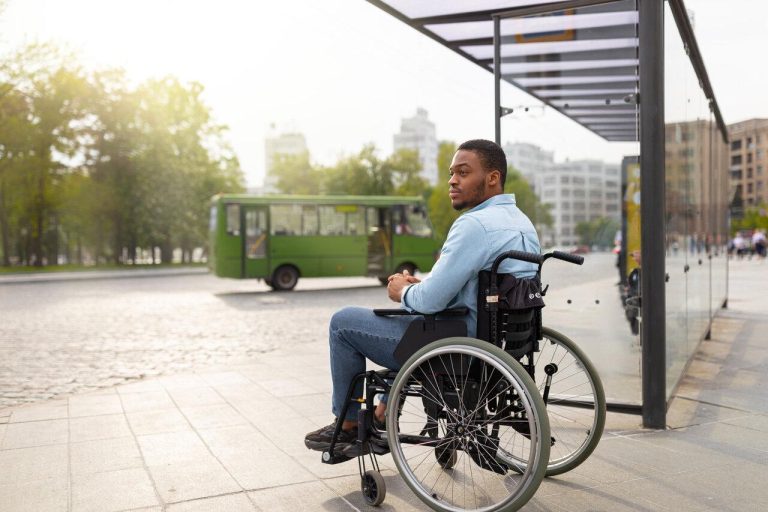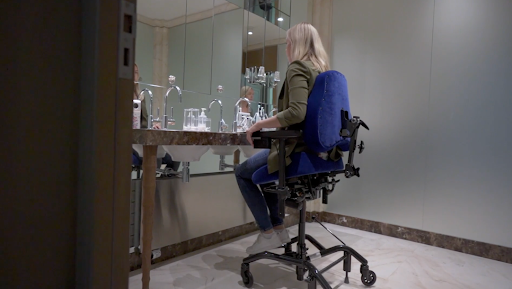The importance of providing functional seating to enable independence at home, work, and school cannot be overstated. This rings especially true when considering the transition from a clinical environment to a home setting. One pivotal element in this transition is the use of clinical chairs, which can play a crucial role in supporting patients with diverse medical conditions. In this article, we delve into the question: Can clinical chairs be used for home care?
Clinical Spaces and Seating Solutions: Understanding the Role of Clinical Chairs in Healthcare Settings
In hospital and healthcare settings, clinical chairs are essential pieces of equipment designed to address the seating needs of patients with varying medical conditions. From infusion spaces to team spaces, these chairs are integral in promoting patient comfort and support.
Enhancing Comfort and Functionality
Clinical chairs are indispensable components in healthcare environments. These specialized chairs cater to the unique needs of patients, providing not only comfort but also essential support for individuals with various medical conditions. Whether it’s the ergonomic design or adjustable features, these chairs contribute significantly to the well-being of patients in clinical settings.
Facility Design and Setting: Integrating Seating Solutions into Healthcare Spaces
Clinical seating solutions play a significant role in the design of healthcare facilities, contributing to the overall atmosphere and functionality of these spaces. Designing healthcare facilities involves considerations for seating solutions that align with clinical care requirements. Clinical care recliners, with their specialized features and ergonomic design, become integral elements in facility design. Whether in patient rooms or common areas, these seating solutions contribute to creating a healthcare environment that prioritizes both patient comfort and the efficiency of healthcare professionals.
Product and Equipment: Essential Components in Healthcare Spaces
Whether it’s facilitating comfort during medical procedures or providing a supportive environment for recovery, seating products are integral to the healthcare experience. The selection of appropriate seating solutions, aligned with the specific needs of patients, ensures that healthcare spaces are equipped with essential components that contribute to the delivery of quality care.
Do I need a prescription to get a mobility chair?
Home Care and Residential Setting: Adapting Seating Solutions for Comfortable Living
Tailoring seating solutions for home care involves incorporating the comfort and support found in clinical chairs into residential settings. Specialized chairs for home use provide individuals with comfort and support, fostering independence while maintaining the familiarity of their living spaces. The transition to home care involves not just bringing clinical chairs into residences but adapting them to ensure a seamless fit within the existing furniture layout. This fusion of healthcare functionality with the coziness of home settings enhances the quality of life for individuals receiving care at home.
Adaptability and Mobility
One of the primary considerations when introducing clinical chairs to home care is their adaptability to different spaces. Transfer chairs, lift chairs, and adjustable chairs provide mobility solutions, aiding patients in maintaining independence within the confines of their homes.
Durable Medical Equipment (DME) in Home Care
The transition from a healthcare facility to home care often involves the incorporation of Durable Medical Equipment (DME). Clinical chairs, ranging from patient seating to infusion chairs, become vital components in enhancing the quality of life for patients with mobility challenges.
Benefits of Clinical Chairs in Home Care
Clinical chairs contribute to the improvement of the quality of life for patients with chronic conditions. By bringing clinical chairs into home care environments, patients can receive healthcare services in a familiar and comfortable setting. They offer supportive seating options that cater to specific medical needs, allowing individuals to maintain a seated position with ease. This is particularly significant for patients who require ongoing medical attention.
Can mobility chairs be used indoors and outdoors?
Homecare Equipment Essentials: Significance of Clinical Chairs
Clinical chairs are an essential component of homecare equipment, serving a significant role in providing comfort and support to individuals in need. These chairs, specifically designed for clinical environments, are sturdy and durable, capable of withstanding the demands of daily activities such as bathing, dressing, and eating.
In addition to their use in home health, clinical chairs play a vital role in home infusion cases. These chairs provide a comfortable and supportive seating option for individuals receiving intravenous therapy at home. They can be used in conjunction with other devices such as IV poles, infusion pumps, and even hip packs or backpacks to allow patients to move around their homes while still receiving their required doses. Whether it’s for home health or home infusion, clinical chairs serve as an integral part of the medical furniture and equipment in homecare settings, providing individuals with the support and assistance they need to live a fulfilling and independent life.
The Versatility of Clinical Chairs
Clinical chairs are primarily designed for specific use in clinical environments and are typically able to withstand the demands of medical procedures such as dialysis. However, their versatility extends beyond the confines of a hospital setting. These chairs can also be utilized for home care purposes, providing comfort and support for patients during various events and activities.
For instance, individuals who require assistance due to a temporary physical limitation may benefit from using a clinical chair when attending a funeral or wedding. Similarly, if a patient needs to have an IV line or antibiotics administered at home, clinical chairs can be used by home infusion providers or other homecare providers to ensure a safe and comfortable environment for treatment.
A patient recovering from hip replacement surgery may use a clinical chair to block pain and support mobility during therapy sessions at home. These chairs can also be helpful for teaching and monitoring/teaching purposes, allowing patients to comfortably observe and engage with medical care professionals during home visits. Overall, the versatility of clinical chairs in the context of homecare furniture provides an essential tool to enhance the well-being and comfort of patients in their own living environments.
Exploring Quality Seating Solutions
Materials and Features
The choice of materials in seating solutions is integral to their durability and user comfort. Innovations such as PVC-free vinyl and similar technologies showcase the commitment of manufacturers to providing quality products. These materials not only contribute to the longevity of the seating solutions but also align with the industry’s emphasis on environmentally friendly and sustainable practices. The incorporation of advanced materials ensures that seating solutions not only meet high-quality standards such as an ideal weight balance but also adhere to evolving expectations regarding the environmental impact of healthcare furniture.
Customizability Options
The diverse seat options available allow for tailoring these products to individual needs. Decision-making processes involve considering the preferences and requirements of each individual, ensuring that the chosen seating solution aligns with their unique needs. The availability of diverse options empowers healthcare providers and caregivers to make choices that prioritize patient comfort and well-being.
Pattern Options and Aesthetics: Integrating Style with Functionality
Considerations of aesthetics and design play a crucial role in the integration of seating solutions into healthcare spaces. Pattern options, along with thoughtful design elements, contribute to creating a visually appealing and welcoming atmosphere. Beyond functionality, the aesthetics of seating solutions are crucial in creating a conducive and welcoming environment.
Bathroom Safety Devices and Beyond
Beyond traditional seating, clinical chairs also include bathroom safety devices. Commercial quality, these devices provide support on wet surfaces, addressing safety concerns in home care settings.
How do I maintain a mobility chair? | Essential Tips for Long-lasting Performance
Addressing Challenges and Ensuring Safety
Cleaning Protocols and Safety Measures
To ensure a seamless transition, it’s crucial to establish cleaning protocols. Anti-microbial cleaning agents and adherence to hygiene practices are essential for maintaining the safety and health of patients using clinical chairs at home.
Comfort and Support: Prioritizing Well-being
Seating solutions designed for pressure management must prioritize both comfort and support. Whether it’s pressure-reducing support surfaces or features that enhance overall comfort, these seating options play a crucial role in addressing the well-being of patients. Supporting patients with comfort-focused seating not only contributes to their physical well-being but also has positive effects on their mental and emotional states.
Hygiene
Maintaining a clean and hygienic environment is of utmost importance. Cleaning protocols, including the use of anti-microbial cleaning agents, ensure the well-being of patients. By adhering to cleaning standards, overall patient health is promoted.
Testing and Quality: Ensuring Durability and Reliability
Quality testing is a non-negotiable aspect of crafting healthcare furniture, including seating solutions. Rigorous testing procedures guarantee the durability and reliability of these products. Manufacturers set benchmarks for testing and quality assurance, providing healthcare facilities with seating options that withstand the demands of daily use and contribute to the overall safety and well-being of patients.
Empowering Independence at Home with Clinical Chairs
Clinical chairs can indeed be seamlessly integrated into home care, providing essential support for individuals with diverse medical conditions. Whether it’s ensuring proper seating for chronic conditions or accommodating mobility challenges, the right clinical chair can significantly contribute to the well-being and independence of patients in their home environments.
Welcome to EMP Living, your go-to destination for cutting-edge adaptive seating solutions! Discover a new dimension in adaptive seating with our innovative powered and manual chairs, designed to enhance your lifestyle with ergonomic and functional features.
Explore Our Adaptive Seating Solutions
- REAL Adult Chair: Experience the epitome of powered, ergonomic adaptive seating designed for your home and work needs. Our customizable REAL Adult Chair is a perfect blend of comfort and functionality.
- REAL Child Chair: Nurture active participation at home and school with our specially crafted adaptive chair for children – the REAL Child. Tailored for the unique needs of young users.
- REAL Big & Heavy Chair: Engineered for heavy users, the REAL Big & Heavy Chair boasts powered height control, making it ideal for those with long legs. Elevate your seating experience with this adaptive solution.
- REAL Lift Chair: Enjoy the benefits of powered rise and tilt with our REAL Lift Chair. Designed for personalized comfort, it enables you to rediscover the joy of doing what you love at home.
At EMP Living, our REAL seating is not just a chair; it’s a lifestyle enhancer. The functional design empowers users to do more independently, longer, and safely. Our modular design allows you to customize your chair to fit your specific needs, ensuring you get the perfect seating solution tailored just for you.
Contact by phone at (425) 949-7195 or send us an online message. Embark on a journey towards enhanced independence with our adaptive seating solutions. Choose EMP Living for adaptive seating that empowers you to do more!



